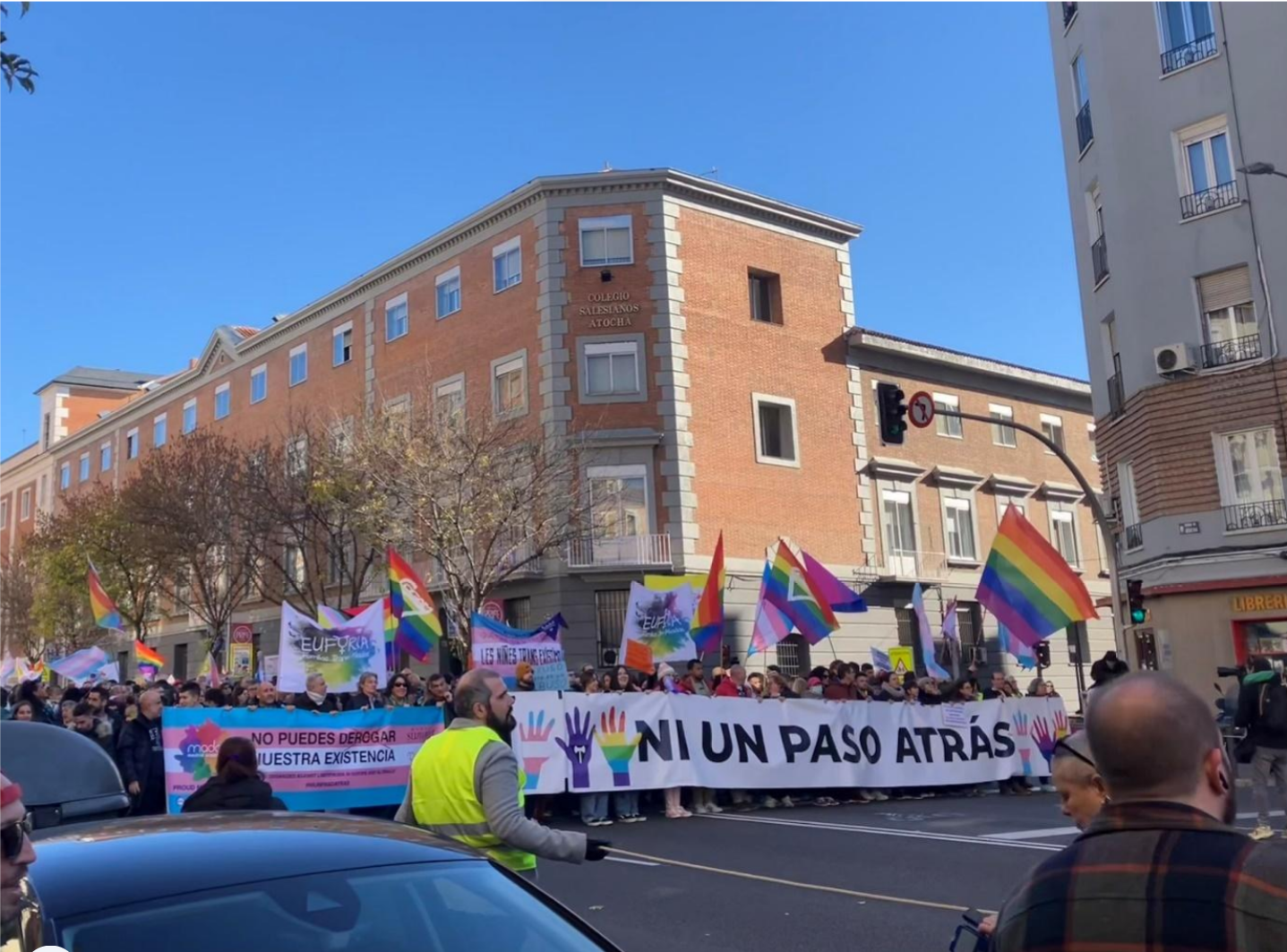Community of Madrid partially revokes trans and LGBTQ rights laws
Zoe Dahse
‘Ni un paso atrás’ – ‘not one step backwards’. A protest was held in Atocha, Madrid, on December 17th by transgender rights group Euforia in the days before the reforms were passed.
On December 22nd, the President of the Community of Madrid, Isabel Díaz Ayuso, from the centre-right Partido Popular (PP) party, passed a proposal that strips back protections for transgender and LGBTQ people in the Spanish capital’s region. With 80 votes in favour and 53 against, the change was enacted. The PP holds the majority in the chamber, with Vox, Spain’s far-right party, also supporting the reforms.
It makes Madrid the first of Spain’s 17 regions to roll back on LGBTQIA legislation.
The passed proposal now amends a regional transgender rights law and LGBTQ rights law that the same party passed in 2016 under then-leader Mariano Rajoy, with the result that discrimination against workers on the basis of sexual orientation or gender identity is no longer a punishable offence. It also means that it is not punishable to beat a person on the basis of their sexual orientation or gender identity without causing injury.
Furthermore, the reforms replace the terms “transgender people” and “gender identity” with “transsexuals” and “transsexuality”, which opponents have highlighted as demeaning and archaic language. It also means that underaged transgender people will only be able to start hormone replacement therapies after examination by a paediatrician and psychologist. This has raised concerns from opponents that it will create pathologisation, whereby the transgender experience is approached as something that elicits suffering. This comes despite the fact that only a year ago, in December 2022, a nationwide bill was passed which allowed anyone aged 16 or over to change their gender on their ID card without the need for a medical diagnosis of gender dysphoria. The same law also saw a ban on conversion therapy.
The instigators of the reform argue the reforms expand LGBT rights in Madrid: in an interview, PP representative Mónica Lavín defended the reforms, saying, “The only thing being eliminated in these reforms are those arguments that are more ideological … we are trying to substitute ideology for science”.
Carla Antonelli, a member of the party Más Madrid and transgender activist, posted on X in response to the passing of the law: “It opens the doors to conversion therapy, pathologises trans lives and leaves us entirely unprotected.” She added that Más Madrid will now go to the Ombudsman of Spain, Ángel Gabilondo, to appeal to the Constitutional Court.
Having quickly pushed the reforms through in the final days of the year, Ayuso took advantage of a time when the political climate in Spain was occupied with the amnesty ruling and succeeded in doing so.

